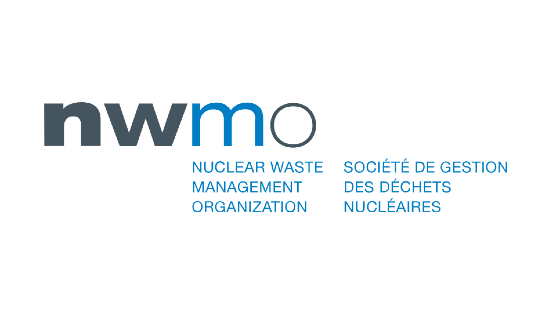OTTAWA, November 3, 2005 - Canadians expect to accept responsibility now for the long-term management of used fuel produced by the country's nuclear electricity generators. They want a system for future management put in place that is safe, secure and fair. Used fuel is currently safely stored on an interim basis in licensed facilities at the reactor sites where it is produced.
After a comprehensive three year study that engaged specialists, stakeholders and citizens from all walks of life, the Nuclear Waste Management Organization has recommended Adaptive Phased Management for the long-term care of used nuclear fuel. The NWMO today presented its report and recommendation to John McCallum, Minister of Natural Resources Canada. The Government must now decide on an appropriate approach.
"Our recommendation is firmly rooted in values that Canadians hold dear," said NWMO President Elizabeth Dowdeswell. "It commits this generation to take first steps now to manage used nuclear fuel we have created. And it is flexible, allowing for the ongoing involvement of citizens in decision-making about how it is implemented," she added.
Adaptive Phased Management is a technical method and a management system. The method is implemented in stages with the end goal of centralizing all of Canada's used nuclear fuel in one location, and isolating and containing it deep underground in a suitable rock formation. The management system is phased and adaptive, with explicit decision-points to incorporate new social learning and technological innovation as it is implemented. At each stage options, including a contingency for temporary shallow underground storage, can be evaluated and the plan modified before proceeding. A future society will decide whether and when there is sufficient confidence in the safety of the approach to seal and backfill the repository.
The NWMO was required by the Nuclear Fuel Waste Act to consider three technical methods: deep geological disposal in the Canadian Shield; centralized storage either above or below ground; and storage at nuclear reactor sites. In assessing the three, each was found to have distinct advantages but none perfectly met all of the objectives citizens said were important. This led the NWMO to develop a fourth approach. Adaptive Phased Management builds on the strengths of the others.
Adaptive Phased Management:
- Commits this generation to take the first steps now to manage the used nuclear fuel we have created.
- Recognizes that over the long term it would be imprudent to rely on a human management system alone with its changing forms of institutions and governance.
- Will meet rigorous safety and security standards through its design and process.
- Allows sequential decision-making, providing flexibility to adapt to experience and social change.
- Provides genuine choice by taking a financially-conservative approach, and providing for capacity to be transferred from one generation to the next.
- Promotes continuous learning, allowing for improvements in operations and design that would enhance performance and reduce uncertainties.
- Builds confidence in the technology and supporting systems before the final phase is implemented.
- Provides a viable, safe and secure long-term storage capability, with the potential for retrievability of used fuel which can be exercised until future generations have confidence to close the facility.
- Provides for continuous monitoring and contingency against unforeseen events, either natural or man-made.
- Is rooted in values and ethics, and engages citizens allowing for societal judgements as to whether there is sufficient certainty to proceed with each step.
More than 18,000 people, including 500 specialists, contributed to the NWMO study. 2500 people took part in NWMO-supported dialogues designed and delivered by national, regional and local Indigenous organizations.
When the Government of Canada decides on a management approach the NWMO will become the implementing agency. "We intend to seek an informed, willing community to host the central facilities," said Ms. Dowdeswell. "The siting process must be open, inclusive and fair, giving everyone with an interest an opportunity to have their views heard and taken into account."
The NWMO will focus its siting efforts in Ontario, Quebec, New Brunswick and Saskatchewan - provinces which are directly involved in the nuclear fuel cycle. If communities in other regions express an interest they will be considered.
Choosing a Way Forward, the NWMO final study report is available for download at: www.nwmo.ca or in hard copy by contacting the NWMO.

